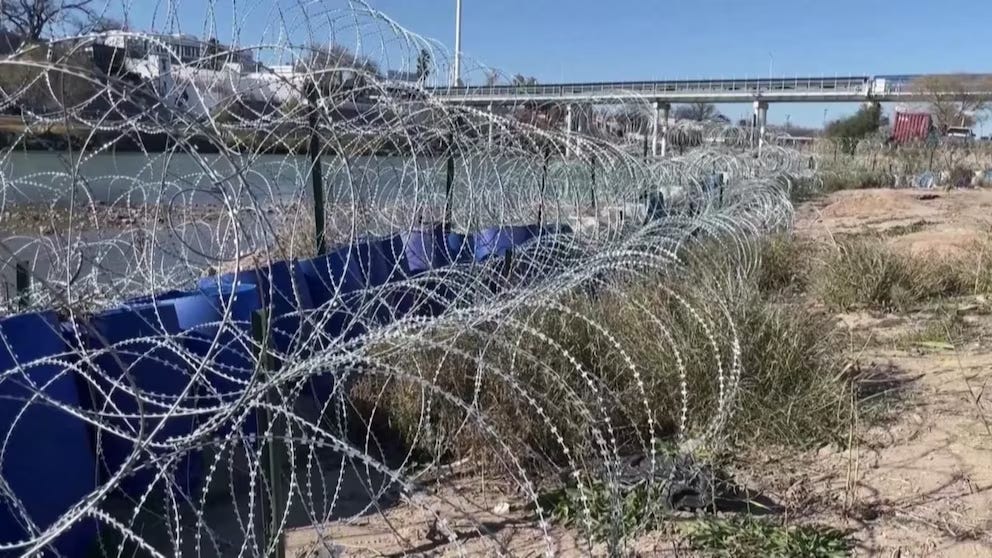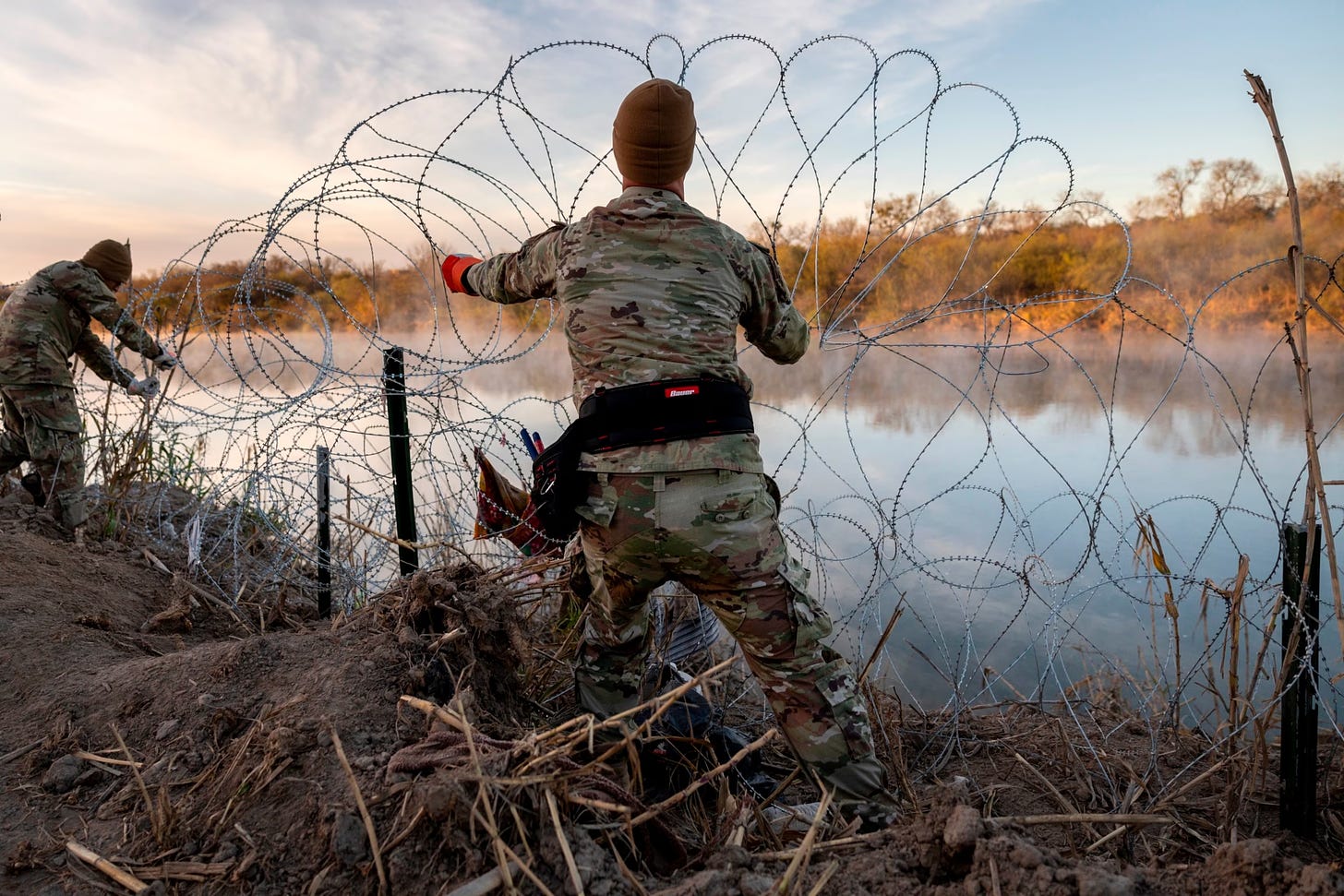Featured
Elon Musk & Robert F. Kennedy Jr. Weigh in on Texas’ Border Battle With Joe Biden

In a bold defiance of a recent Supreme Court decision, Texas Governor Greg Abbott has taken a controversial step in the ongoing battle over border security. Using a legal loophole, Abbott has directed the Texas National Guard to continue installing razor wire along the state’s border with Mexico. This move comes in the wake of a 5-4 Supreme Court ruling that authorized U.S. Border Agents to remove such barriers, but did not explicitly restrict state actions.
The Supreme Court’s decision, narrowly focused, left a significant gap that Abbott was quick to exploit. While it directed federal agents to dismantle the razor wire on top of Texas’ border wall, it remained silent on the state’s right to undertake similar actions. This distinction forms the heart of the current standoff, highlighting the intensifying clash over border security measures between the Lone Star State and the Biden Administration.

Governor Abbott’s response was swift and assertive. In a statement, he accused the federal government of failing to protect Texas from what he termed an “invasion,” citing Article IV Section 4 of the U.S. Constitution. Abbott’s stance is clear: he believes that Texas has the constitutional authority to defend itself, a power he argues supersedes any conflicting federal statutes.
However, this unilateral decision has sparked considerable opposition. Democratic Representative Joaquin Castro of Texas has voiced strong criticism, urging President Biden to take control of the Texas National Guard. Castro’s remarks condemn Abbott’s actions as a deliberate attempt to obstruct and create chaos at the border, highlighting the deep political divide over immigration and border policies.

This latest development is a continuation of the growing tensions between Texas and the federal government. Earlier this month, members of the Texas National Guard were involved in a controversial incident where they blocked access to a public park, preventing Border Patrol officials from carrying out their duties. Such actions signify a larger pattern of state-level defiance in the face of federal strategies for border security.
In the unfolding drama at the Texas border, two high-profile individuals, Elon Musk and Robert F. Kennedy Jr., have taken to social media to express their views, each echoing support for Texas’ actions and critiquing the federal government’s approach.

Robert F. Kennedy Jr.’s Strong Stance: Robert F. Kennedy Jr., in a tweet, firmly sided with Texas, stating: “Texas is right. Biden’s failure to secure the border leaves states no choice but to take matters into their own hands.” He underscored the perceived necessity for states to act independently due to what he views as the federal government’s inadequate response to border security. His statement also revealed a future-oriented political promise: “As President, I will end this humanitarian crisis once and for all. I will secure the border and destroy the business model of the drug cartels.” Kennedy articulated a vision of robust border control and a crackdown on drug trafficking, emphasizing, “A country without borders is not a country at all.”

Elon Musk’s Direct Critique: Elon Musk, the CEO of Tesla and SpaceX, known for his straightforward and often provocative social media presence, concurred with the sentiment. His tweet was brief but pointed: “Texas is absolutely right.” Musk went further to accuse the current administration of legal violations, stating: “This administration is deliberately breaking the law by aiding and abetting illegal immigration at an unprecedented scale!” His comments reflect a strong endorsement of Texas’ measures and a critical view of the federal government’s handling of immigration and border security.
Impact of Their Statements: The remarks from Musk and Kennedy have added significant weight to the public discourse surrounding the Texas border situation. Both comments highlight a common theme of support for state-led actions in the context of perceived federal shortcomings. Their statements resonate with those who advocate for stronger border security measures and criticize the current administration’s policies.
As the situation at the Texas border evolves, the razor wire has become more than a physical barrier; it symbolizes the escalating conflict over how best to manage and secure the nation’s borders. The balance between state autonomy and federal oversight remains a contentious issue, with significant implications for the future of border security policy in the United States.
Governor Abbott’s strategic maneuvering at the Texas border marks a pivotal moment in state-federal relations. It raises critical questions about the limits of state power and the ongoing struggle to define America’s approach to border security in an era marked by heightened political polarization. As both sides stand firm, the nation watches, awaiting the next move in this high-stakes chess game of governance and law.
-

 Health2 days ago
Health2 days agoDr. McCullough Issues Chilling COVID Vaccine Forecast
-

 Featured9 hours ago
Featured9 hours agoBiden Administration Risks Gain-of-Function Research of ‘Bird Flu’ Amid Fears of Human Transmission
-

 Health3 days ago
Health3 days agoHere We Go: Two New COVID Variants Named ‘FLiRT’ Spreading Across U.S.
-

 Health1 day ago
Health1 day agoOBGYN Doctor Calls on Attorneys to Sue Institutions That Forced COVID Shots on Babies & Pregnant Women






























